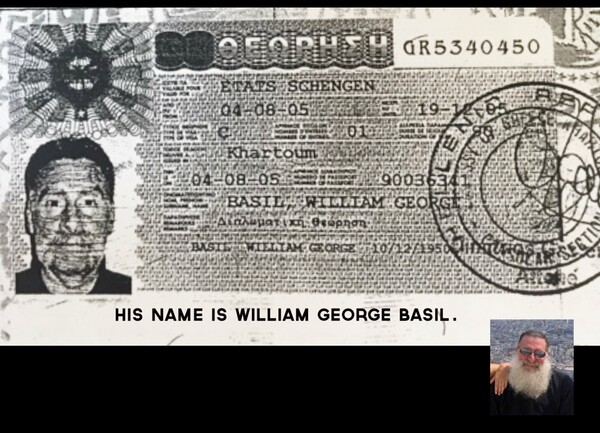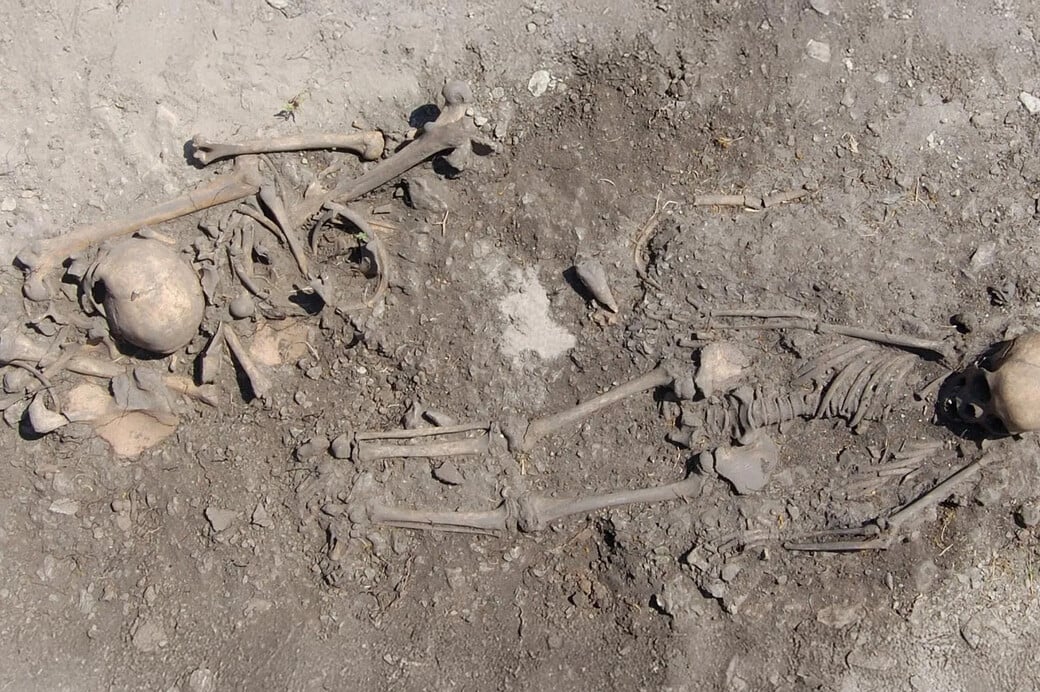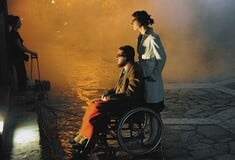"'Ενας θάνατος στην Αθήνα".
O αμερικανός δημοσιογράφος James Bamford (βραβευμένος το 2006 με το National Magazine Award για το άρθρο του "The Man Who Sold The War" στο Rolling Stone) ερευνά το σκάνδαλο των τηλεφωνικών υποκλοπών και τις συνθήκες του θανάτου του Κώστα Τσαλικίδη. Το άρθρο του, που εξετάζει σε βάθος και το ρόλο του περιβόητου ελληνοαμερικανού πράκτορα της CIA William George Basil για τον οποίο οι ελληνικές αρχές εξέδωσαν το 2015 ένταλμα σύλληψης, δημοσιεύτηκε στις 29 Σεπτεμβρίου στο νεοσύστατο (2014) ερευνητικό σάιτ The Intercept, που διευθύνεται από τους Jeremy Scahill, Glenn Greenwald και Laura Poitras, γνωστούς από την υπόθεση Snowden.

A DEATH IN ATHENS
Did a Rogue NSA Operation Cause the Death of a Greek Telecom Employee ?
James Bamford
"Just outside the main dowtown part of Athens lies Kolonos, an old Athenian neighborhood near the archaeological park of Akadimia Platonos, where Plato used to teach. Along the maze of narrow streets, flower-filled balconies hang above open-air markets, and locals gather for hours at lazy sidewalk cafes, sipping demitasse cups of espresso and downing shots of Ouzo in quick gulps.
It was a neighborhood Costas Tsalikidis knew well. He lived at No. 18 Euclid Street, a loft apartment just down the hall from his parents. Slim and dark-haired, with a strong chin and a sly smile, he was born in Athens 38 years earlier to a middle-class family in the construction business. Talented in math and physics from an early age, he earned a degree in electrical engineering from the National Technical University of Athens, considered the most prestigious college in Greece, where he specialized in telecommunications, and later obtained his master's in computer science in England. Putting his skills to good use, for the last 11 years he had worked for Vodafone-Panafon, also known as Vodafone Greece, the country's largest cell phone company, and was promoted in 2001 to network-planning manager at the company's headquarters in the trendy Halandri section of Athens.
On March 9, 2005, Costas' brother, Panagiotis, dropped by the apartment. He thought he'd have a coffee before a business meeting scheduled for that morning. But as he entered the building, he found his mother, Georgia, running up and down the corridor yelling for help.
"Cut him down!" she was saying. "Cut him down!"
Panagiotis had no idea what she was talking about until he went inside his brother's apartment and saw Costas hanging from a rope tied to pipes above the lintel of his bathroom door, an old wooden chair nearby. He and his mother cut the rope and laid Costas down on the bed.
The day before his death, Costas' boss at Vodafone had ordered that a newly discovered code — a powerful and sophisticated bug — be deactivated and removed from its systems. The wiretap, placed by persons unknown, targeted more than 100 top officials, including then Prime Minister Kostas Karamanlis and his wife, Natassa; the mayor of Athens; members of the Ministerial Cabinet; as well as journalists, capturing not only the country's highest secrets, but also its most intimate conversations. The question was, who did it?
For a year, the eavesdropping case remained secret, but when the affair finally became public, it was regarded as Greece's Watergate. One newspaper called it "a scandal of monumental proportions." And at its center was the dark underside of the 2004 Summer Olympic Games in Athens. While the athletes were competing for medals as millions watched, far in the shadows spies had hacked into the country's major telecom systems to listen and record.
A decade later, Costas' death is caught up in an investigation into what now appears to have been a U.S. covert operation in Greece. Last February, Greek authorities took the extraordinary step of issuing an international arrest warrant for a CIA official the Greeks believe was a key figure in the operation while based in Athens. Unnoticed by the U.S. press, the warrant was a nearly unprecedented action by an allied country. The intelligence official, identified as William George Basil, was accused of espionage and eavesdropping. But by then he had already left the country, and the U.S. government, as it has done for the past 10 years, continues to stonewall Greek authorities on the agency's involvement.
The Greek charges only touch the surface, however, and Basil may be less a key figure than simply a spy guilty of poor tradecraft. An investigation by The Intercept has uncovered not only the role of the CIA, but also that of the NSA, as well as how and why the operation was carried out. The investigation began while I was producing a documentary for PBS NOVA on cyberwarfare, scheduled to air on October 14, for which some of the interviews were conducted. In addition, I have had exclusive access to highly classified and previously unreported NSA documents released by Edward Snowden.
The Intercept, along with the Greek newspaper Kathimerini, interviewed over two dozen people familiar with the wiretapping case, ranging from U.S. intelligence officials and Greek government officials to those involved in the investigation and its aftermath. Many of those interviewed agreed to talk on condition that their names not be used, fearing criminal prosecution for speaking on intelligence matters or professional retribution. While some questions remain, the evidence points to a massive illegal eavesdropping program that may have led to Costas' tragic death.
"COSTAS WAS ENGAGED," his brother, Panagiotis, told me last year. "He was planning to get married." Like Costas, who was three years younger, Panagiotis spoke fluent English, the product of frequent trips to the U.S., both on business and vacation.
After a dinner of lamb and hummus at a restaurant not far from the apartment where Costas died, Panagiotis spoke emotionally about his brother. "He had met the woman of his life and they were planning to get married really soon. And for that reason, they were looking to get a house and they had already started buying things that they could use in their new household. Costas was happy and optimistic and things had been working out really good for him."
At the time, Panagiotis couldn't understand what had happened; Costas was in good health and, at least until recently, seemed to love his job at Vodafone. "I thought there was no reason for him to commit suicide," he said, although he acknowledged Costas had been under more pressure than usual. "In the last year of his life, he was working very hard because Greece had undertaken the Olympic Games of 2004," he said. "And that meant a lot of hours at work and a lot of planning to beef up the networks."
Given the enormous numbers of journalists and tourists who were planning to attend the events, all wanting to communicate, Costas' workload increased enormously in the months before the games were to begin. Eventually, the technical infrastructure created by the Athens Olympics Organizing Committee for staff and media involved more than 11,000 computers, 23,000 fixed-line telephone devices, and 9,000 mobile phones. But the Olympics ended more than six months before Costas' death, so there had to be another reason.
At work, things suddenly began to change. Costas told his brother that he wanted to quit. "He tendered his resignation to the company, but it wasn't accepted," Panagiotis told me. "He wanted to get out." And he sent a text to his fiancée, a piano teacher named Sara Galanopoulou, saying he had to leave his job, adding cryptically that it was a "matter of life and death."
As Costas Tsalikidis and his colleagues at Vodafone worked overtime in the months leading up to the games, thousands of miles away another group was also getting ready for the Summer Olympics in Greece: members of the U.S. National Security Agency. But rather than communicating, they were far more interested in listening. According to previously undisclosed documents from the Snowden archive, NSA has a long history of tapping into Olympic Games, both overseas and within the U.S. "NSA has had an active role in the Olympics since 1984 Los Angeles games," according to a classified document from 2003, "and has seen its involvement increase with the recent games in Atlanta, Sydney, and Salt Lake City. During the 2002 Winter Olympics in Salt Lake City, the focus was on counterterrorism, and NSA acted largely in support of the FBI in a fusion cell known as the Olympics Intelligence Center (OIC). ... NSA's support to the 2004 Olympics in Athens will be much more complicated."
In 2004, for the first time since the 9/11 attacks of 2001, the Summer Olympic Games would be held outside the U.S., and thus the difficulties would be far greater. "Several factors will make the Athens Olympics vastly different," the document continued, "not the least of which is the fact these Olympics will not be held at a domestic location. Also different is that the security organization that NSA will support is the EYP, or Greek National Intelligence Service. NSA will gather information and tip off the EYP of possible terrorist or criminal actions. Without a doubt, the communication between NSA and EYP will take some coordination, and for that reason preparations are already underway."
According to a former senior U.S. intelligence official involved with the operation, there was close cooperation between NSA and the Greek government. "The Greeks identified terrorist nets, so NSA put these devices in there and they told the Greeks, OK, when it's done we'll turn it off," said the source. "They put them in the Athens communications system, with the knowledge and approval of the Greek government. This was to help with security during the Olympics."
The Olympic Games ran smoothly — there were no serious terrorist threats and Greece had its best medal tally in more than a century. On August 29, 16 days after the games began, closing ceremonies were held at the Athens Olympic Stadium. As 70,000 people watched, Greek performers displayed traditional dances, a symbolic lantern was lit with the Olympic Flame, and Dr. Jacques Rogge, president of the International Olympics Committee, gave a short speech and then officially closed the games.
Two weeks later, the Paralympics ended, and at that point, keeping their promise to the Greek government, the NSA employees should have quietly disconnected their hardware and deleted their software from the local telecommunications systems, packed up their bugging equipment, and boarded a plane for Fort Meade. The problem was, they didn't. Instead, they secretly kept the spying operation active, but instead of terrorists, they targeted top Greek officials. According to the former U.S. intelligence official involved with the operation, the NSA began conducting the operation secretly, without the approval or authorization of the CIA chief of station in Athens, the U.S. ambassador, or the Greek government.
"We had a huge problem right after the Greek Olympics," the source said. "They [NSA] said when the Olympics is over, we'll turn it off and take it away. And after the Olympics they turned it off but they didn't take it away and they turned it back on and the Greeks discovered it. They triangulated some signals, anonymous signals, and it all pointed back to the embassy."
At that point, the source said, someone from the Greek government called Richard Eric Pound, the CIA chief of station at the embassy in Athens and the person officially responsible for all intelligence operations in the country. Pound had arrived in May 2004, replacing Michael F. Walker, the agency's former deputy director of the paramilitary Special Activities Division, as chief of station in Athens. Describing himself as "a small town boy from Indiana who set off to see the world," Pound had joined the agency in 1976. Hefty and mustachioed, he was a veteran of the agency's backwater posts in Africa.
Pound, according to the source, knew nothing about the operation having been turned back on, so he called his boss at CIA headquarters to ask about it. "He says, 'What in God's name is this all about?'" said the source (Pound declined to speak to The Intercept). Pound's boss then immediately called his NSA counterpart. "Oh, yeah, we were going to tell you about that," the NSA official told Pound's CIA boss, according to the source. "They didn't take it out and they turned it back on."
National Security Agency Deputy Director John Chris Inglis testifies before the House Select Intelligence Committee on the NSA's PRISM program, which tracks web traffic and US citizens' phone records, during a hearing on Capitol Hill in Washington, DC, June 18, 2013. Not informing the chief of station and the ambassador was an enormous breach of protocol. The chain of events surprised another source, a long-time veteran of the CIA's National Clandestine Service, who was once a colleague of Basil in Athens. "I can't think of another time in my experience when that ever happened, that's how unusual it is," the source said. "I'm astounded by that."
In 2006, Chris Inglis became the NSA's deputy director, the agency's No. 2 official, who was thus in a position to discover what had happened. In an interview, I questioned him about the scandal and the illegal bugging operation. "Was the NSA involved?" I asked. Inglis offered no denial. "I couldn't say whether NSA was involved in that or any other activity that might have been alleged to be conducted by an intelligence service, let alone NSA."
Inglis did confirm, however, that NSA operations in foreign countries would normally have the approval of the CIA chief of station. "The chief of station," he said, "would speak on intelligence matters for the nation, or essentially be expected to adjudicate matters on behalf of the nation." He added, "So if NSA was expected to conduct an intelligence operation physically in some particular place of the world, I would expect that the chief of mission — the ambassador — and that the chief of station — the intelligence rep — would have some influence on that, some kind of ability to understand what it was and to ensure that it was done in the proper way."
I also put the question to Gen. Michael Hayden, the NSA director at the time. "Do you remember the incident that came up involving Greece?" I asked. "Not anything we're going to talk about here," he said. "Did that come to your attention?" I pressed. "Not something I can talk about," he replied.
At the time of the Greek bugging operation, Hayden was also secretly running the NSA's illegal warrantless eavesdropping and metadata dragnet surveillance programs, the largest domestic spying operations in U.S. history.
Theodoros Pangalos a former foreign minister of Greece said on Tuesday, Oct. 29, 2013 the U.S. is not the only country eavesdropping on foreign diplomats: his country's secret services did that to U.S. ambassadors in Athens and Ankara in the 1990s.

Stonewalled by the U.S., over the past decade Greek investigators were nevertheless able to follow a digital trail right to the front door of the U.S. Embassy in Athens, and then to William George Basil, a mysterious embassy official with a Greek background.
Although very little is publicly known about Basil, interviews with his relatives and childhood friends in Greece, as well as fellow embassy employees and intelligence officials in Athens and the U.S., shed light on his background.
Basil was born on December 10, 1950, in Baltimore, where many of his relatives had settled after emigrating from Greece. Much of his extended family came from the small Greek island of Karpathos in the Aegean Sea, a port of call for the Argonauts traveling between Libya and Crete, and mentioned in Homer's Iliad. There, his ancestors worked as stonemasons and as farmhands in mountainside wheat fields.
His father, George, had emigrated to the U.S. where Basil and his sister, Maria, spent their early years. But when Basil was 9, his now-divorced father became engaged to a woman from Karpathos and they all traveled to the island for the wedding. An old snapshot shows a young Basil in a suit jacket sitting uneasily on the back of a donkey. After a few months, the family returned to the U.S., then in the 1960s, when Basil was in his early teens, moved back to Karpathos for good.
Today, childhood friends there still remember Basil as "Billy," an Americanized youth who liked to spend time on the beach. His cousin Nikos Kritikos often played sports with him. "He played rugby when he was young," Nikos said. "He was amazingly smart. ... We grew up in the same house; his stepmother, Marigoula, raised us." And Basil's uncle Manolis Kritikos, a local schoolteacher, remembered him as "a happy kid who smiled." "He was always restless as a young man, he searched things," he said. "Most of all he liked the history of this place, the folklore. ... And he loved Greece and [the Karpathos village of] Olympos more than anything."
Basil 9 years old attending his father's wedding on Karpathos Basil, 9 years old, attending his father's wedding on Karpathos. After graduating from high school at the American Community Schools in Athens in 1968, Basil joined the Army for five years and was posted to Alaska. Then, according to Basil's former CIA colleague, he took a job as a Baltimore County deputy sheriff and later joined the CIA's Office of Security as a polygraph expert. But, after nearly two decades, said the colleague, he grew bored with strapping recruits and potential agents to lie detector machines and sought a position in the agency's Directorate of Operations. Largely based on his Greek heritage and fluency in the language, he was accepted and quickly disappeared behind the agency's heavy black curtain, emerging undercover as a Foreign Service Officer with the State Department.
With a black diplomatic passport in his pocket, he was soon on his way to Athens, a city he knew well; he had owned an apartment in the city for many years, which he rented out. Soon after arriving, he moved into an apartment near the beach in Glyfada, one of the most exclusive areas of the city, home to ship owners and wealthy business executives. A long-time biker, he would often cruise around the city on his motorcycle.
At the U.S. Embassy in Athens, he was officially a second secretary in the regional affairs section, later promoted to first secretary. In reality, he joined the CIA station as a terrorism expert. The station, located on the embassy's top floor (with the forgery section in the basement), was one of the largest in Europe, because it often served smaller Middle East stations with logistical help and temporary personnel. Protected by a bulletproof vest under his shirt, a 9 mm pistol strapped to his belt, and a small M38 handgun on his ankle, Basil, who had a reputation as an Olympic-level shooter, drove around the city in an armored car looking for informants to recruit and liaising with the Greek police organization. According to a confidential report by Greek prosecutor Yiannis Diotis, obtained by The Intercept, Basil played a role in a March 2003 operation — just prior to the U.S. invasion of Iraq — that involved an informant recruited by the embassy's CIA station. The operation, code-named "Net," led to the discovery, by a joint U.S.-Greek team, of a small cache of guns and explosives in the basement of the Iraq Embassy in Athens (...)".
Ολόκληρο το άρθρο του James Bamford στο σάιτ The Intercept.com





























σχόλια